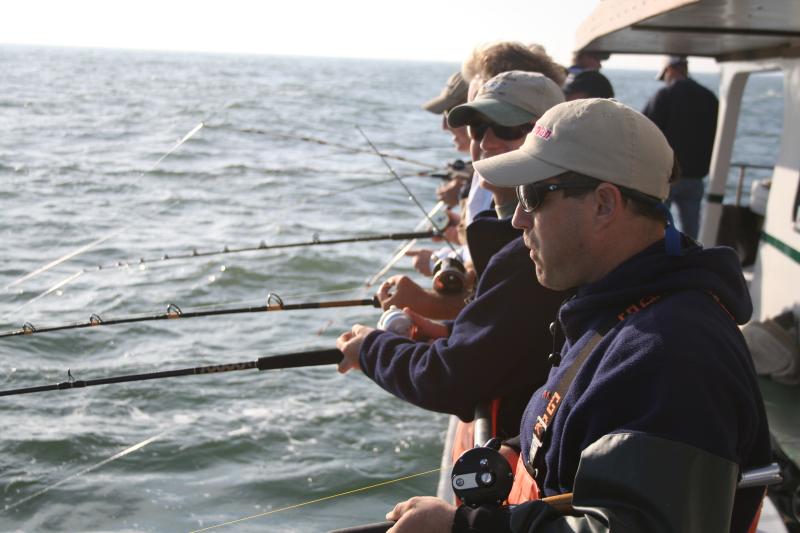The difference between head boats and charter boats
I had a reader ask me to explain the difference between charter and head boats, and what he could expect to catch from each. He moved here from an area where such things were not available and had no idea how they operated. I suspect he is not alone, so I will try to explain the difference between the two and the type of fish each may target.
Beginning with head boats, they are usually less expensive than charter boats because the cost is divided among more customers. In our part of the world, head boats generally fish closer to shore than charter boats, and some may run two trips a day. There are exceptions, and the larger head boats can run to the canyons to fish for tuna and tilefish.
Head boats out of Lewes generally fish for spot, croaker, flounder and trout in Delaware Bay. They will work the many artificial reefs available there, and during the summer, these trips are very popular with tourists and locals alike.
At Indian River Marina, the head boats fish for black sea bass and flounder. One boat, the Judy V, runs half-day trips, while the Captain Bob runs full-day excursions. These boats fish the ocean, and the seas can be a bit more unsettling than the bay. Those who suffer from motion sickness may want to take that into consideration.
There are several more head boats in Ocean City, Md. Some fish the back bays for flounder, while others work ocean structure for flounder and black sea bass. Pick up a copy of the Coastal Fisherman to see ads for the various boats running out of the “City.”
Most head boats will supply bait, and have rental rods and reels. The rentals are very sturdy and will do the task at hand.
I like to fish from head boats because they are comfortable. I can ride out sitting at a table or on a padded bench in a big cabin. The cabin may be heated or even have air conditioning.
I usually remove my own fish from the hook and do my own rebaiting. Should I end up in a tangle with one or two of my fellow anglers, the mate will quickly resolve the problem. He or she will also net any fish that is so big I can’t lift it over the rail. Unfortunately, for me, that is a rare occurrence.
Most head boats will have a pool contest. It is usually for the biggest fish and may have restrictions. For instance, dog sharks and skates do not count. Only flounder and black sea bass are eligible to win the pool. You want to listen carefully to the mate before you give him your money.
While head boats may have 100 people or more, charter boats usually only carry six. Some boats may carry eight if they have a regular Coast Guard inspection.
If you plan to set up a party of six, make sure you get their money up front. If your second cousin on your wife’s side decides to roll over and go back to sleep at o’dark-thirty on the day of the trip, at least you will have his money.
When you make your reservation, the captain will tell you what catch is the best bet at that time of the year. Listen to the captain. He is on the water a lot more than you are, and he knows what he has been catching and what other captains have been catching.
If you want to catch tuna and he says the closest tuna are in the Hudson Canyon, while the black sea bass action is red hot, go with the black sea bass. The other alternative is to make a reservation for a time when the tuna are within range of Delaware boats.
Let’s say you and your party decide to go with the black sea bass. The captain says he wants to leave the dock at 6 a.m. That means you and your party should be on board and settled in by at least 5:45 a.m.
If you don’t have suitable tackle for the trip, there will be good rods and reels on board. The mate will be more helpful because there are only six of you, and he also needs to keep a count of the fish.
I wish I could say how much each trip will cost, but with the up-and-down price of fuel, I wouldn’t hazard a guess.
I can say how much to tip your mate. If he was attentive, I will tip 20% of the cost of the trip. If he didn’t do anything, like the dolts I had on my last trip on a Jersey head boat, I just walk right by and say thanks.






















































